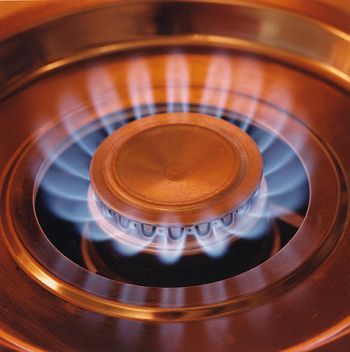26th Carnival of Nuclear Energy Bloggers
Special edition for ANS Winter Meeting
 This is the weekly Carnival of Nuclear Energy Bloggers with contributions from the leading pro-nuclear blogs in North America. The blog posts here are selected by the bloggers themselves as the best posts for the past week. If you are looking for the voice of the nuclear renaissance, you will find it here.
This is the weekly Carnival of Nuclear Energy Bloggers with contributions from the leading pro-nuclear blogs in North America. The blog posts here are selected by the bloggers themselves as the best posts for the past week. If you are looking for the voice of the nuclear renaissance, you will find it here.
Fluid core reactors
At NuclearGreen, Charles Barton writes about the Aqueous Homogeneous Reactor. It is an account of the early history of fluid core reactors. This account discusses the role of the Aqueous Homogeneous Reactor, in early reactor development, as well as a brief account of the attempt by Oak Ridge National Laboratory to develop the AHR for the generation of electric power and thorium breeding.
Thorium reactors and Asian nuclear deals
There are two items from Brian Wang at Next Big Future. David LeBlanc explains why thorium reactors can need so much less fissile uranium to get started and why ongoing material requirements are less. Vietnam makes deals with Russia and Japan for nuclear reactor construction, and Philippine organizes a push and a plan for nuclear energy.
Are the Russians coming for a Czech nuclear deal?
At Idaho Samizdat, Dan Yurman reports that the $25 billion reactor deal for the Czech Republic's Temelin Power Station, and two other sites, is still in play. The utility CEZ, which will build, own, and operate the reactors, has short-listed three firms-Areva, Westinghouse, and Atomstroyexport. The Russians have major energy deals with most of eastern Europe, Germany, and Poland for natural gas. If they win the $25 billion Temelin contracts, they could easily dominate the nuclear energy space as well.
Natural gas competes with nuclear energy when it is cheap
 At Atomic Insights, Rod Adams takes another look at how natural gas competes with nuclear energy. He asks does hydraulic fracturing change the game or is temporarily "cheap gas" a sales technique designed to significantly delay the potential competition from new nuclear power plants? Rod has put together a representative series of quotes and links that show the rhythmic beat of the "cheap gas" mantra. He is not a believer. The oil & gas industry has a war chest capable of a lengthy price war and plenty of cheerleaders, but the history of natural gas prices is anything but predictable.
At Atomic Insights, Rod Adams takes another look at how natural gas competes with nuclear energy. He asks does hydraulic fracturing change the game or is temporarily "cheap gas" a sales technique designed to significantly delay the potential competition from new nuclear power plants? Rod has put together a representative series of quotes and links that show the rhythmic beat of the "cheap gas" mantra. He is not a believer. The oil & gas industry has a war chest capable of a lengthy price war and plenty of cheerleaders, but the history of natural gas prices is anything but predictable.
How much energy does Ontario need?
Natural gas and nuclear energy are also topics worthy of consideration at Steve Aplin's Canadian Energy Issues. In a post titled "Trends v. snapshots: Does Ontario need more or less electricity?" Aplin writes that electricity demand dropped in the years before 2010, because of the recession and two consecutive mild summers.
The anti-nuclear pro-gas lobby cites the alleged down-trend as the reason to defer building new nuclear plants-they hope that short-term supply pressure will force a quick move to gas when demand goes back up. They try to reassure worried rate-payers by pointing to today's cheap gas price. But the history of the volatile gas price since 2005 shows why rate-payers are right to worry about a move to gas.
Yes, Vermont Yankee is up for sale
Meredith Angwin writes at Yes Vermont Yankee that Republican Phil Scott won his race for Lieutenant Governor of Vermont by 10 percentage points. Scott was one of the four senators who supported Vermont Yankee in the relicensing vote. In contrast, anti-Yankee Shumlin won the Governor's race by a squeaker. Support for the reactor was not a detriment to a winner. Also, Angwin has news on Entergy's announcement that Vermont Yankee is for sale.
Anyone want to buy a reactor project in Maryland?
At the New York Times 'Green Blog about Energy & Environment," reporter Matt Wald asks who will build Calvert Cliffs 3, in partnership with Electricite de France (EdF), now that Constellation has withdrawn from the project. A review of several nuclear utilities finds cautious responses to the question. EdF must have a U.S. partner under the law concerning foreign ownership of nuclear facilities. So far the hunt is still on to find one.
Hello GOP. Goodbye Cap-and-Trade
 At Fuel Cycle Week, Nancy E. Roth writes that GOP gains in Congress mean you can kiss cap-and-trade goodbye. Many nuclear industry advocates and observers expect the industry to benefit from this week's election results, which delivered a Republican majority to the U.S House of Representatives, while significantly narrowing the Democratic majority in the Senate.
At Fuel Cycle Week, Nancy E. Roth writes that GOP gains in Congress mean you can kiss cap-and-trade goodbye. Many nuclear industry advocates and observers expect the industry to benefit from this week's election results, which delivered a Republican majority to the U.S House of Representatives, while significantly narrowing the Democratic majority in the Senate.
After all, constituent groups that favor nuclear energy tend to vote Republican, and it stands to reason that their representatives in Washington would reflect that in relevant energy legislation. Retired Sen. Pete Domenici (R., N.M.) was easily one of the best friends that nuclear ever had in Congress. The most outspoken nuclear advocates on the Hill, such as Sens. John McCain, Lamar Alexander, and Lisa Murkowski (who at this writing has apparently managed to keep her seat in a write-in race), are almost all affiliated with the GOP.
Conversely, most antinuclear diatribes seem to spring from the Democrats' side of the aisle, from figures such as Congressman Ed Markey (Mass.).
But these optimistic expectations do not bear up under scrutiny of what Republicans (apart from Domenici) have actually done to help nuclear development, as opposed to what they say they want to do. The disconnect is striking. And, judging by the boisterous antigovernment and anti-climate action platforms Republican candidates embraced this year, that disconnect is not going away anytime soon.
Will nuclear energy do better with a Republican House?
NEI Nuclear Notes also writes about the election. The blog of the nuclear energy trade group writes that all elections provide elation and hope for some and despair for others. That's as true for those in the nuclear energy sphere as in any other. But I prefer hope, especially as the fluid nature of American politics makes it very difficult to really make sure predictions.
NEI cites the New York Times, which reports:
"Rep. John Boehner (R., Ohio), the presumed new House Speaker, may have already etched out the blueprints for a GOP energy bill with the 'American Energy Act.' That legislation, which he introduced last year, calls for ramping up nuclear energy and offshore drilling as well as creating incentives for renewable energy."
Three reasons why a small country wants large reactors
 At Cool Hand Nuke, we get news that Vietnam has inked deals to build four new reactors at an average price of $2800/Kw. Russia and Japan will each build two reactors in Vietnam's central highlands. Both countries will supply and retrograde the fuel, which means Vietnam will not need enrichment capabilities nor have to deal with the issue of reprocessing. Eventually, Vietnam plans to build eight 1000 MW reactors.
At Cool Hand Nuke, we get news that Vietnam has inked deals to build four new reactors at an average price of $2800/Kw. Russia and Japan will each build two reactors in Vietnam's central highlands. Both countries will supply and retrograde the fuel, which means Vietnam will not need enrichment capabilities nor have to deal with the issue of reprocessing. Eventually, Vietnam plans to build eight 1000 MW reactors.
Vietnam has several strategic objectives for building the reactors.
First, it needs the electricity to support its growing manufacturing role as an exporter to the West. Intel announced on October 29 that it is opening a $1 billion microchip manufacturing plant, the biggest in the company's history.
Second, Vietnam has huge bauxite deposits, the world's third largest deposit, in its central highlands. It wants to develop a finished goods aluminum industry that requires a lot of electricity.
Third, Vietnam knows it cannot compete with China for Mideast fossil fuels. It needs electricity from uranium-fueled nuclear reactors to power its economy.
What is even more interesting is that with all the hype about the potential for small modular reactors to do well in markets dominated by developing nations, Vietnam has chosen to go with full-scale reactors.
Pacific Basin Conference draws a crowd
At Nuke Power Talk, Gail Marcus, a past ANS president, blogs about the Pacific Basin Nuclear Conference that took place in Cancun last week. About 300 people from 25 countries attended the meeting. She notes that plenary speakers from the United States included Joe Colvin from the American Nuclear Society, Shane Johnson from the Department of Energy, and Margaret Doane from the Nuclear Regulatory Commission. Speakers from Australia, Canada, China, Japan, Korea, Mexico, Russia, and Taiwan made plenary presentations.
New industry transparency gets media attention
A story at Atomwatch by Robert Margolis concerns INPO assessment information for the Columbia Generating Station. In the past, INPO assessments have been confidential. It is possible that the media are now paying closer attention to INPO assessments and are obtaining information and publishing it.
While transparency in regulation is required for a healthy nuclear industry, INPO assessments are typically designed to provide additional improvements above and beyond the required regulations. The public may become confused when they read that a particular reactor received a low rating from INPO without having the appropriate context. The NRC and INPO have separate roles and responsibilities.
# # #

